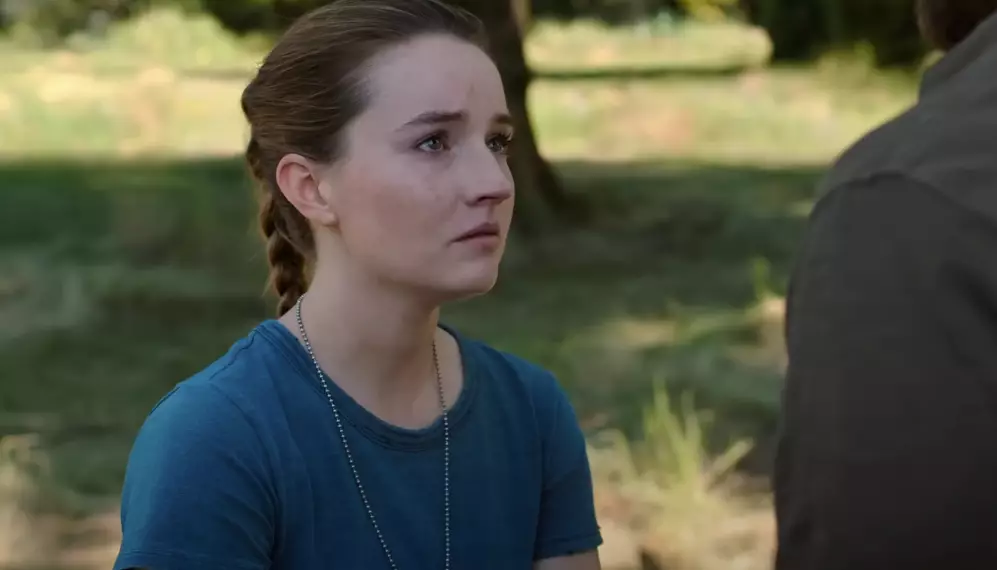In the opening of the highly anticipated Season 2 of *The Last of Us*, viewers are thrust into the intense psyche of Abby, portrayed by Kaitlyn Dever. The cold, calculated manner in which she expresses her desire to track down and kill Joel sets a haunting tone for the episode. Abby’s chilling declaration that she wishes to kill Joel “slowly” resonates deeply, illuminating not only her grief but also her overwhelming need for vengeance. This moment encapsulates the raw, emotional weight that drives her character, making it clear that she is not merely a villain, but a complex individual grappling with the loss of her father at Joel’s hands.
Dever herself describes Abby as a “chilly ice queen,” emphasizing the character’s emotional turmoil beneath her hardened exterior. This reflects a nuanced understanding of Abby’s motivations; she isn’t just acting out of a simple desire for revenge, but is instead driven by a heartbroken sense of injustice. This portrayal challenges the audience to empathize with a character defined by loss and desperation, evoking a strong emotional response that remains central to the narrative’s exploration of vengeance.
Character Complexity and Public Discourse
The character of Abby has always sparked intense debate, especially following the release of *The Last of Us: Part II*. Opinions are sharply divided, with many fans struggling to reconcile her actions with their feelings for Joel, a character they had grown to love. Dever acknowledges the dialogue surrounding Abby’s character, noting that while she is aware of the controversies, it was essential to her performance that she doesn’t let public perception color her portrayal. This self-awareness is crucial; it allows her to embody Abby authentically, navigating the complexities that accompany a character so deeply intertwined in the moral ambiguities of their world.
By choosing not to obsess over online discussions, Dever channels Abby’s pain and rage more effectively, crafting a performance that resonates with an authenticity that might otherwise be overshadowed by external voices. In doing so, she reinforces the importance of personal interpretation in acting, highlighting how an actor’s relationship with their character can significantly influence the portrayal’s depth.
A Confident Creative Partnership
One of the most fascinating aspects of this adaptation lies in the collaboration between Dever and the creators, Craig Mazin and Neil Druckmann. Their confidence in Dever’s ability to deliver the complexities of Abby without necessitating an audition reveals a deep artistic synergy. This connection fosters an environment allowing Dever to embrace the role fully without the overwhelming pressure of outside criticism or performance anxiety.
Mazin and Druckmann’s secure storytelling encourages actors to explore their characters without fear of judgment, a crucial factor in creating a believable narrative. As Dever notes, such confidence is liberating, enabling her to make bold choices that resonate with audiences on an emotional level. This dynamic partnership propels *The Last of Us* beyond simple storytelling into complex character exploration, elevating the series into a dialogue about morality, justice, and human fragility.
Strong Viewership and Cultural Impact
The premiere of Season 2 has made waves not only for its narrative depth but also for achieving significant viewership milestones. With 5.3 million same-day viewers tuning in, the series demonstrates its strong cultural relevance and the audience’s engagement with these profound themes. This growing popularity indicates a fierce following, suggesting that the discourse surrounding characters like Abby will continue to evolve as the series progresses.
The widespread conversation this series evokes is indicative of its impact on modern storytelling. The debate surrounding Abby reflects broader themes of revenge and redemption that resonate deeply in our society, showcasing how video game adaptations can serve as a means of exploring human experiences in ways that traditional narratives may not. By confronting the audience with morally gray characters, *The Last of Us* invites viewers to grapple with challenging emotional questions that linger long after the credits roll.
The multifaceted portrayal of Abby stands as a testament to the potential depth and emotional resonance that can be achieved in television storytelling, suggesting a bright future for the series as it continues to navigate the complex paths of its characters.

